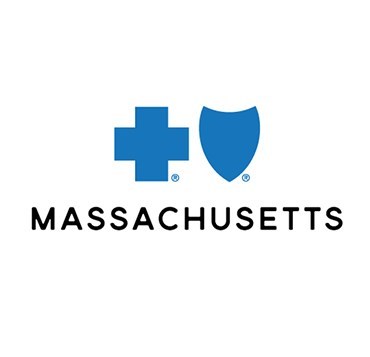Survey finds over 70% of average-risk members not aware of all their options for screening
BOSTON, Oct. 1, 2024 /PRNewswire/ -- Blue Cross Blue Shield of Massachusetts ("Blue Cross") wants to ensure that members know their options for colorectal cancer screening. The United States Preventive Services Task Force (USPSTF) recommends adults age 45 to 75 be screened for colorectal cancer, or as recommended by their health care provider.
"We encourage our members to talk to their doctors and decide what type of screening is right for them," said Sandhya Rao, MD, Blue Cross' chief medical officer. "We're trying to make it as easy as possible for our members to have those conversations and make informed decisions. We know screening saves lives, and it's never been more important, with rates of colorectal cancer on the rise."
Helping members understand their options
Blue Cross' new, dedicated page on the MyBlue member portal is designed to help members understand their options when it comes to the different types of screening tests for colorectal cancer.
For members 45 years of age or older and at average risk, there are a variety of screening options recommended by the USPSTF, including colonoscopy and at-home tests that can be used to reduce the risk of developing and dying from colorectal cancer.
The use of at-home tests by average-risk patients can help members avoid wait times and get their results sooner. High risk members who can't screen at home can work with their doctor to schedule a colonoscopy.
New: Making it easier to get home screening kits delivered for free
In addition to helping our members understand their screening options, we're also making it easier for them to navigate and order certain at-home screening kits at no cost via the MyBlue member portal.
Members will typically receive results within a few weeks of completing the test.
Survey: Over 70% of average-risk members aren't aware of all their screening options
Blue Cross conducted a survey last year that found that over 70% of our average-risk members who've had a colonoscopy were not aware of all their options for colorectal cancer screening. As a result, we're working with the clinicians in our network to increase the use of shared decision making to ensure members understand their screening options for colorectal cancer as well as their options for a variety of other clinical areas, such as low back procedures or lung cancer screening.
Shared decision making, which can help improve overall colorectal cancer screenings rates and health equity, is a collaborative approach that encourages physicians and patients to work together to decide which care options are the best fit with each patient's individual values and preferences.
Highlights include:
- In July, we convened clinicians in our network to talk about the importance of shared decision making and helping patients understand all of their options, specifically for colorectal cancer screening.
- As part of a shared decision making pilot starting in 2022, Blue Cross and Beth Israel Lahey Health improved members' overall colorectal cancer screening rates by 10%.
- Blue Cross has been working with Mass General Brigham's nationally recognized leaders to measure and implement shared decision making to improve cancer screening processes and improve patient care in a variety of areas.
"We were pleased to partner with Blue Cross on this initiative, which has led to a remarkable increase in the rate of cancer screenings in the population we serve," said Dr. Josh Berkowitz, chief medical officer at Beth Israel Lahey Health's Performance Network. "This program accelerated BILH's ability to develop a decision aid that our providers and patients now use to make the most informed choice for which colorectal cancer screening test to undergo. We have spread this approach from select practices within our network to the majority of our network."
"Colorectal cancer screening is just one area where Mass General Brigham has deployed shared decision-making aids to ensure patients are aware of their options and to improve overall screening rates," said Dr. Katherine Rose, senior medical director for primary care quality at Mass General Brigham. "There's no one-size-fits-all solution to patient care, which is why we continue to utilize shared decision making across our organization to improve the quality of the conversations we have with our patients about significant medical decisions."
Additionally, our value-based payment contracts incorporate measures that focus on measuring and rewarding equity in care in several clinical areas where inequities have been identified, including colorectal cancer screenings.
Engaging employer customers
In order to expand members' understanding of their colorectal screening options, we're launching a pilot program with some of our employer customers this fall. As part of this engagement, employer customers will receive additional guidance about screening options and at-home test kits.
About Blue Cross Blue Shield of Massachusetts
Blue Cross Blue Shield of Massachusetts (bluecrossma.org) is a community-focused, tax-paying, not-for-profit health plan headquartered in Boston. We are committed to showing up for everyone like they're the only one and guiding our members to the exceptional health care they deserve – affordably, equitably and seamlessly. In keeping with our commitment, we are rated among the nation's best health plans for member satisfaction and quality. Connect with us on Facebook, Twitter, YouTube, and LinkedIn.
SOURCE Blue Cross Blue Shield of Massachusetts

